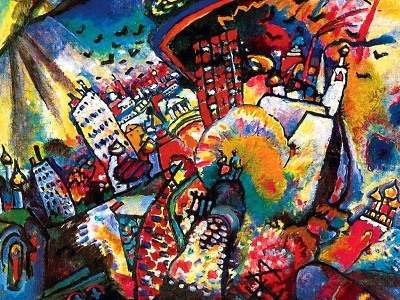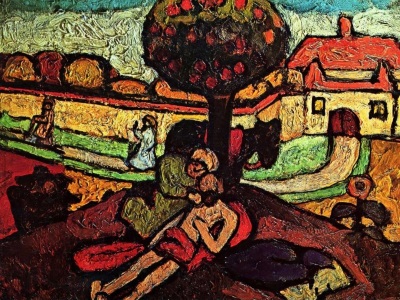Faith in God means faith for the future. Those who live in God do not look back but forward. Those who are alive do not look back over the short span of their own life, nor even over the greater span of religious development, to find a past realization of their current longing. They look forward into time, toward the goal, toward the destiny of humankind as it should be and as it shall be.
When we put our hand to God’s plow, we look forward; our lives are directed by the future. But if we lose ourselves in historical speculation and self-absorbed reveries, we are not fit for God’s kingdom. Certainly, our faith today is linked to God’s working in the past, for God is the same yesterday, today, and forever. But a pietism that immerses itself in the Bible only to gain insights into religious history is a weak and poor thing, because it stands in opposition to the almighty, all-embracing, creative God. There is, however, a way of meditating on scripture that can lift us beyond our small ego and our petty affairs, a meditation that carries us into God’s heart, so that we may take part already now in God’s all-embracing kingdom.
But our expectation of this kingdom cannot be a passive waiting, a sweet, soft occupation with ourselves and our like-minded friends. No; if we truly expect God’s kingdom we will be filled with divine power. Then the social justice of the future – with its purity of heart and divine fellowship – will be realized now, wherever Jesus himself is present. Our belief in the future must bring change to the present!
The spirit of expectation is the spirit of action because it is the spirit of faith. Faith is bravery. Faith is reality. If we have faith, even only a small seed, we cannot regard anything as impossible (Matt. 17:20). For faith is what gives us a clear picture of life’s ultimate powers. It discloses God’s heart to us as the pulse of the entire living creation, and shows us that the secret of life is love.
If we live in love we can never exhaust ourselves in psychic introspection or in narrow conventionality. If we are gripped by the experiences of faith and of love, by the expectation of Christ and his second coming, we will act. For God’s love is boundless; it applies to public life just as much as to the individual heart; to the economic as well as the political affairs.
If we expect God, we will be purified by the purity of the One we expect. There is nothing that heightens the conscience more than such expectation; it eliminates all relativity and overcomes weak submission to the status quo. It enables us to live so securely in the future world that we as its heralds dare, here and now, to assume the unbroken, unconditional character of the kingdom.
Our expectation of the future must mean certainty that the divine will conquer the demonic, that love will conquer hate, that the all-embracing will conquer the isolated. And certainty tolerates no limitation. God embraces everything. When we trust in him for the future, we trust for the present. When we have innermost faith in him, this faith will prove valid for all areas of life.
Adapted from Johann Christoph Arnold, ed. Eberhard Arnold, Modern Spiritual Masters (Rifton, NY: Plough, 2011). The original essay, "Expectation," from December 1920, can be read in our digital archive.
Article edited for length and clarity.


